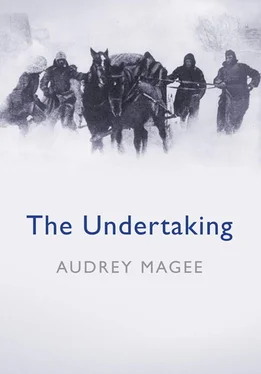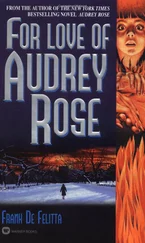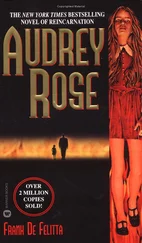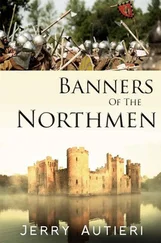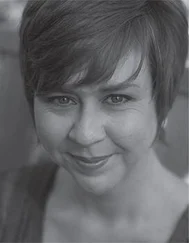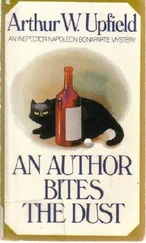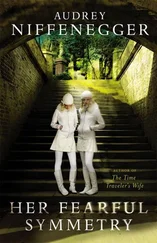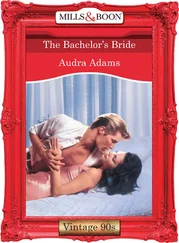Katharina fell silent.
‘I’d better go and pack,’ she said.
‘Good girl.’
She closed her bedroom door and pushed against it, locking out her parents. She was twenty-two years of age. A married woman. When would they accept that and stop calling her girl? He had to come back to take her away from them, because she couldn’t bear it any longer. Being their daughter. The good girl.
She packed her things quickly, easily, into a small suitcase, covering everything with the wet, dripping sheets taken from the side of the bath. She placed the case by the hall door and returned to her mother in the kitchen.
‘What are we taking from here?’ asked Katharina. ‘Plates? Cutlery? Saucepans?’
‘Only saucepans. The rest they leave behind. They are allowed only one suitcase. What remains is for us.’
‘Where have they gone?’
‘I don’t know. East, I think. Out, anyway. Here, take this.’
She handed over Johannes’ favourite mug, dark brown with a heavily moustached man etched into its side.
‘He would never forgive us if we left it behind. And take his ashtray too.’
The hall filled quickly with boxes and suitcases.
‘I think we’re ready,’ said Mrs Spinell. ‘Mr Ewald is lending us his cart.’
‘Will you miss it, Mother?’
‘No. Not a bit.’
They stacked the grocer’s cart and pushed it until the streets grew quieter and wider.
‘The trees are beautiful,’ said Katharina. ‘They’re huge.’
Mr Spinell stopped the cart behind a car, in front of two enormous and elaborately carved wooden doors.
‘Is this it?’ said Mrs Spinell. ‘It can’t be.’
‘It is, my love.’
They stepped into a large hall, its ceiling heavy with white sculpted plaster. Mr Spinell rubbed his shoes against the back of his legs and stepped onto the red patterned carpet covering the staircase. The women followed. Katharina squealed at its softness; her mother bent down to touch the rails and rods.
‘Solid brass, Günther.’
They climbed, three abreast, to the second floor, uncertain whether to turn left or right.
‘The key is in the door,’ said Mr Spinell.
‘I can see it,’ said Katharina. ‘We’re on the right.’
She turned the key and they entered a square hallway with a gilt-edged mirror and a white marble bust. Two glass doors led to the living room with polished wooden floors, a grand piano, sofas, rugs, paintings and alcoves lined with leather-bound books.
‘It’s beautiful,’ said Katharina.
‘Finally,’ said Mrs Spinell. ‘A proper home.’
The two women threw off their shoes and rushed around the apartment, laughing as they opened doors onto enormous bedrooms and balconies. The kitchen drawers were stacked with equipment for slicing and beating, and cupboards filled with starched linen sheets, tablecloths, napkins, and huge soft towels, still perfectly white.
‘They had everything,’ said Katharina.
‘While we had nothing,’ said Mrs Spinell.
They converged again on the living room, telling Mr Spinell about the bathtub big enough for two, but he was focused on the alcoves, cursing loudly and throwing books onto the floor.
‘Rubbish, rubbish. These will have to go before we can sleep a night in this house.’
Katharina chose the bedroom furthest from the kitchen, with a balcony overlooking the small but richly planted courtyard. She opened the large mahogany wardrobe and tried on the silk dresses and linen skirts, but none would fit. The shoes were also too small, so she settled for some cardigans, shawls and a long fur coat with matching hat that she wore into the living room.
‘Any jewellery?’ asked Mr Spinell.
‘No,’ said Katharina. ‘Not that I can see.’
‘Bloody thieves, the lot of them. They swallow it, you know. To hide it from us.’
He piled his arms with books and headed for the front door. ‘Take your things off the cart. I need it,’ he said.
He dumped the books into the cart, their covers splaying as they fell.
‘Wait here. I’ll fetch the rest. Make sure nobody takes any of them. They’re corrosive. Every one of them.’
He disappeared back up the stairs, and returned with more books and the marble bust.
‘Not the statue, Günther,’ said Mrs Spinell. ‘It suits the hall.’
‘It’s Mendelssohn, Esther.’
Katharina carried her suitcase to her room and unpacked, draping the wet sheets across the balcony and hanging her dull, limp clothes alongside the fur coat. On her way to the linen cupboard, she caught sight of her mother in a red, woollen dress.
‘You look lovely, Mother.’
‘But it’s Jewish. I can’t possibly wear it.’
‘Take it. It suits you.’
‘I don’t know.’
‘You deserve it.’
‘Do you think so?’
She looked at herself in the mirror again. And smiled.
‘I suppose I do. But I’ll wash it first. And disinfect it.’
When Mr Spinell returned, the three of them sat at the polished dining room table.
‘It’s our turn now,’ said Mrs Spinell. ‘Our turn at the good life.’
‘I think I’ll take piano lessons,’ said Katharina.
‘A fine idea,’ said her father. ‘It’s about time we had a musician in the family.’
Faber found them picking over the remains of a tractor, its bulletpocked bonnet folded back to allow them to scrutinize what was left of the engine. He bellowed at them.
‘Get back! That’s Russian property.’
Weiss turned, his rifle already cocked.
‘You bastard, Faber.’
He dropped his weapon.
‘So, how was she?’
‘Better than expected. You should try it.’
‘I have all the woman I need here, without the burden of a wife.’
‘It was no burden.’
‘It will be.’
They all laughed, slapped him on the back and shook his hand. Faustmann passed around his cigarettes.
‘You’ve been gone a long time, Faber,’ he said.
‘Did you miss me, Faustmann? They extended my leave.’
‘Why?’
‘I was working in Berlin.’
‘Doing what?’
‘Working with my father-in-law. Nothing much. What are you doing with the tractor?’
‘Building a shower,’ said Weiss.
‘Still at that?’ said Faber.
‘We’ve regulated the flow, but not the temperature,’ said Weiss. ‘Sit, sir, and tell us about this woman.’
Faber climbed into the cold metal seat that curved to the shape of his bottom, his legs either side of the broken steering shaft. Weiss, Faustmann and Kraft sat on the rear mudguards.
‘How is my mother, Faber?’ said Kraft.
Faber exhaled slowly, relishing their curiosity.
‘She looked after me well, boys. That’s all I can tell you.’
‘Oh, come on,’ said Weiss. ‘We need more than that.’
‘It’s private, Weiss.’
‘It was never private before.’
‘Well, it is now.’
‘Oh, come on. We’re starved of all sensation.’
‘You look pretty healthy to me.’
‘What about Berlin?’ said Faustmann. ‘Is there much damage?’
‘Some to houses, but people are getting by. The food is dull, though. Heavily rationed.’
‘It’s been good here,’ said Weiss. ‘Lots to eat and lots to buy.’
‘And what about Darmstadt?’ asked Kraft. ‘How is my mother?’
‘I never got to see her, Kraft. But I posted your letters.’
‘Bloody hell, Faber. You said you would.’
‘I’m sorry. I ran out of time.’
‘You’ve been gone for three weeks. You got extra time.’
‘It went by very quickly.’
‘But you promised.’
‘I’m sorry, Kraft.’
‘You’re fucking useless, Faber.’
Kraft slid down the mudguard and walked away. Faber cleared his throat and spat at the ground.
Читать дальше
